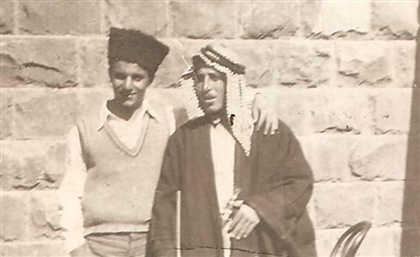
Israeli Government Censors Film Addressing 1948 Palestinian Depopulation

**Censorship Intensifies: Israeli Authorities Block Screening of Palestinian Film Lyd at Jaffa Theater**
In a controversial move last week, Israeli authorities blocked the screening of the film *Lyd* at the al-Saraya Theater in Jaffa, igniting debates over censorship and the suppression of Palestinian narratives. The film, which explores the depopulation of the ancient Palestinian city of Lyd (now Lod, Israel) during the 1948 war, was produced by Roger Waters, co-founder of Pink Floyd, and directed by Palestinian journalist Rami Younis and Jewish-American media artist Sarah Ema Friedland. Israeli Minister of Culture and Sport, Miki Zohar, issued a written order to cancel the screening, citing concerns that the film presented a “distorted picture of reality” and could incite unrest.
### The Film: *Lyd* and Its Context
*Lyd* intertwines historical events, science fiction, and futuristic elements to explore the 1948 exodus of Palestinians and the creation of the State of Israel. The film uses archival footage and present-day interviews with the remaining Palestinian residents of Lyd to cast light on the Nakba (“the catastrophe”). The Nakba refers to the mass displacement of Palestinians following the establishment of the state of Israel in 1948, which remains a highly controversial and sensitive subject in Israeli and Palestinian discourse.
Younis and Friedland’s film is unique in its approach, offering an alternative visual history while imagining a future where the Nakba never occurred. Rather than focusing solely on past tragedy, the directors aim to explore the ongoing struggles of Palestinians living under Israeli rule and offer a speculative look at a possible world without occupation.
However, Israeli authorities, notably Minister Zohar, objected to the film’s portrayal of the Israeli Defense Forces (IDF), which it claims perpetuated a “brutal massacre” during the depopulation of Lyd. Zohar described Younis as an “anti-Israel boycott activist” and Waters as “the leader of the global boycott movement,” arguing that the film defames Israel and promotes a biased view of history.
### The Block: Censorship and Controversy
Just a few hours before the film was due to be shown, Israeli police contacted the al-Saraya Theater, stating the theater’s need for permission from the Israeli Film Review Board to screen the contentious material. According to the theater’s director, Mahmoud Abu Arisha, the authorities claimed that a far-right demonstration was planned to disrupt the screening, thereby increasing the risk of unrest. Meeting these claims with objections, the theater was nevertheless forced to call off the screening.
At 7 p.m. on the day of the screening, Abu Arisha was summoned for questioning, and the theater staff was warned that any attempt to show the film would be considered a criminal offense. Furthermore, the theater was now required to submit its future programming to Israel’s Ministry of Communications for pre-approval.
This form of censorship has drawn significant criticism, both domestically and internationally. Filmmaker Rami Younis responded by stating that the censorship of Palestinian narratives is “nothing new” and that Israel regularly targets works that offer critical perspectives on the state’s actions in areas with Palestinian populations. Co-director Sarah Ema Friedland also condemned the cancellation as part of “a larger global struggle against rising fascism,” referencing similar censorship cases occurring in various countries.
### A Broader Pattern of Suppression?
The blocked screening of *Lyd* is far from an isolated incident. According to reports from Middle East Eye and Human Rights Watch, Palestinian residents of Lyd and other mixed cities with Jewish and Palestinian populations have been subjected to violence from Israeli far-right nationalists and discriminatory treatment from Israeli police. Despite the film’s message and the calls for peace from its creators, the authorities appear focused on controlling the narrative around Israel’s past and present, especially in contexts related to the IDF’s involvement in historical conflicts.
The case of *Lyd* also follows in the pattern of actions taken by Israeli authorities to block Palestinian cultural expression. In August 2023, Israeli police similarly intervened to stop the screening of filmmaker Mohamad Bakri’s *Jenin, Jenin 2*, which dealt with a two-day attack by the Israeli military on the West Bank city of Jenin. These events, coupled with ongoing actions by Minister Zohar to withhold funding from art institutions critical of Israel, suggest that the Israeli government is actively working to limit platforms that challenge its narrative.
### Cultural Censorship: A Legal and Historical Framework
Zohar’s call to cancel the screening came under the legal framework established by Israel’s Film and Theater Review Board, an institution that traces its origins back to a 1927 ordinance during British Mandate rule. This council is generally tasked with ensuring that film content does not incite violence or infringe on public order, a role